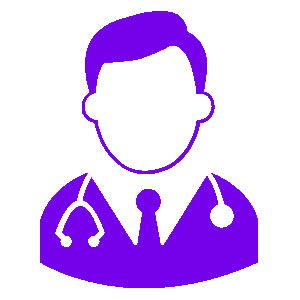

Available at- Sanjay Gandhi Post Graduate Institute of Medical Sciences , Lucknow

Available at- Sanjay Gandhi Post Graduate Institute of Medical Sciences , Lucknow




Available at- Divine Heart and Multispecialty Hospital , Lucknow


Available at- Charak Hospital and Research Centre , Lucknow

Available at- Chiranjeev Hospital and Heart Centre , Lucknow
Cardiology is the branch of medicine that deals with the heart related problems and the circulatory system. A doctor who has specialized in this field of cardiology is called a cardiologist. Cardiologists treat diseases that affect the human heart. There are wide ranges of medical conditions that are treated by cardiologists including high blood pressure, hypertension, chest pain, heart failure, arrhythmias, heart palpitations, shortness of breath, management of blood thinners, congenital heart defects, cardiac arrest, stroke, and more. Patients can consult online with a cardiologist for non-emergency heart problems, cardiologist advice, for the second opinion of a cardiologist, and for follow-ups cases.
When to consult online with a cardiologist for heart-related diseases or cardiology problems-
• If you are experiencing pain or discomfort in the chest, abnormal heart rhythms, high blood pressure, arms pain, dizzy sensations, fast heartbeat and breathing, high levels of fatigue, a blue tint to the skin, cholesterol problem, etc; then instantly consult a cardiologist .
• After heart surgery, if you feel discomfort then you can consult online with the cardiologist.
• To confirm that received cardiology treatment by your doctor is the best one
• To show your diagnostic reports to clarify about your heart health.
• You can consult cardiologist online to explore other treatment options prior to heart surgery or procedure.
Heart disease is a serious and sometimes deadly condition that can strike without warning. It's often referred to as the "silent killer" because sometimes it doesn't show any symptoms at all. That's why it's important to always be aware of your body and any changes that may be occurring. If you have excess weight, high sugar levels, high blood pressure, or high cholesterol levels, you may be at a higher risk for heart disease. It's important to take steps to reduce these risk factors, such as exercising regularly, eating a healthy diet, and managing stress. One of the most important ways to reduce your risk of heart disease is to visit a cardiologist regularly.
A cardiologist can assess your risk factors and provide you with guidance on how to improve your heart health. They may also recommend medications or other treatments to help manage your risk. Don't wait until it's too late to take care of your heart health. Visit the best cardiologist in your area today and take the necessary steps to reduce your risk of heart disease.
Heart problems have become a major health concern in recent years, affecting people of all ages. While some heart problems can be congenital, others can develop over time due to a number of causes. In the past, heart disease was primarily associated with older individuals aged 60 or 70 years and above. However, this is no longer the case. Today, younger adults are also at a high risk of developing heart problems due to a range of factors.
Heart attacks are a serious medical emergency that requires immediate attention and action. While the chances of survival may seem low, it's important to remember that the right treatment at the right time can make all the difference. If you or someone you know is experiencing symptoms of a heart attack, it's crucial to act quickly and seek medical attention.
It is true that signs and symptoms of a medical condition can differ from person to person. However, the symptoms you have mentioned are commonly associated with cardiovascular diseases. Chest pain or discomfort, shortness of breath, chest tightness and fatigue are all symptoms that may indicate a heart problem. Swelling in the feet, ankles, and hands may also occur due to poor blood circulation, which is often related to heart disease. Fainting after exertion can be a sign of a heart problem, as can numbness or weakness in the arms or legs. Pain in the neck can also be a symptom of a heart attack, particularly in women. If you are experiencing any of these symptoms, it is important to seek medical attention immediately.
Depending on the symptoms and the severity of the patient’s condition, a cardiologist may recommend one or more of these tests to detect the root cause of the problem. Some of these tests include chest X-ray, blood tests, electrocardiogram (ECG), echocardiogram (Echo), coronary angiogram, cardiac computed tomography (Cardiac CT), magnetic resonance imaging (MRI), tilt test, blood pressure etc.
At bestdoctorforme, you can find a list of the best cardiologists and make your appointment online. If you need to see a doctor in an emergency, feel free to visit www.bestdoctorforme.com.
Heart attack is caused by the build-up of fatty materials in one or more arteries of the heart. This can happen due to factors such as smoking, drinking, and bad cholesterol consumption. However, it's also due to things like a family history of heart disease, obesity, and an inactive lifestyle.
Sudden cardiac arrest is associated with abnormal heart rhythm. It occurs without prior warning and disrupts the electrical activity of the heart which leads to the irregular and abnormal heartbeat. In cardiac arrest, the heart stops pumping blood to the brain, and other organs of the body. Within a second a person loses consciousness and pulse. It requires immediate medical treatment to save the patient. Family history, being male, and age above 45 are some factors that lead to cardiac arrest.
Copyright © 2023, BestDoctorForMe.com. All rights reserved.